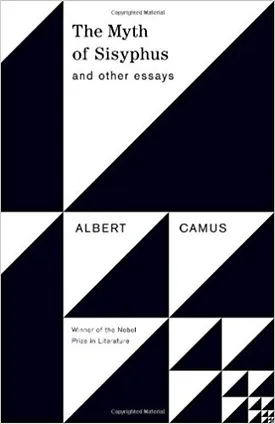Albert Camus
Albert Camus (1913-1960) was a French novelist, dramatist, and essayist born in Algeria who achieved international fame for his works of philosophical fiction. Despite his short lifespan, Camus wrote prolifically, producing several works of philosophy and literary works of fiction and non-fiction. He is best known as an existentialist philosopher and advocate of the absurd. His works engage with difficult questions concerning the meaning of life and morality, but he always manages to present these issues in a remarkably readable and entertaining manner.
Camus's most notable works include his 1946 essay “The Myth of Sisyphus”, his novel The Stranger (1942), and his post-war plays Caligula and The Misunderstanding. In 1957, he was awarded the Nobel Prize for Literature, becoming the second-youngest Nobel laureate in history. Even in death, Camus remains a titanic figure in the world of literature, remembered as one of the most famous and thought-provoking analytical minds of the 20th century.
Camus was raised in colonial Algeria where he faced abject poverty and the harsh realities of life as a young boy. Even in his early works, Camus’s innate sensitivity and understanding of the struggles of human existence is evident. He noted that in life, individuals had a choice between security or freedom and in making this distinction he became an absurdist, believing that a person was capable of finding meaning in life despite the truly random nature of the universe. His works of philosophy and fiction explore this idea of the absurdity of existence, giving readers the tools to find something meaningful in life regardless of the external chaos and incertitude.
Camus’s most notable novel, The Stranger, is a prime example of his absurdist writing. The novel follows an anonymous narrator, Meursault, as he battle apathy and a general lack of compassion for other people. Through his story, Camus puts forward the notion that humans must make meaning for themselves and that it is essential to keep searching for truth and meaning despite the seeming randomness of life.
The theme of “the absurd” also appears in his essay “The Myth of Sisyphus”. Here, Camus examines the story of Sisyphus, a figure in Greek mythology who was cursed to eternally push a giant rock up a hill only to have it roll back down again just as he reached the top. Through this parable, Camus argues that while it is impossible to make sense of a cruel and chaotic universe, humans are inevitably driven to pursue meaning and purpose in life. This essay is widely considered to be a major influence on many philosophical thinkers who followed, such as Jean-Paul Sartre.
In addition to his works of literature, Camus was an advocate for social justice. He spoke out on many political issues, including colonialism, countering racism and nationalism, and the refugee crisis. He criticized French colonialism in Algeria and supported an independent Algeria even before it became a cause célèbre. He also voiced support for the independence movements in other African countries, and was a strong advocate for freedom and equal rights for all people.
Albert Camus' life and works remain influential to this day. Through his works of literature and non-fiction, Camus searched for and found meaning in a world of chaos and struggle. He was an advocate of social justice and an existentialist who taught us to be curious, to question and to think differently. He wrote of the unanswerable questions of life, but still managed to challenge the reader to find meaning. Through his works and words, Camus will continue to inspire readers and thinkers worldwide for many years to come.


